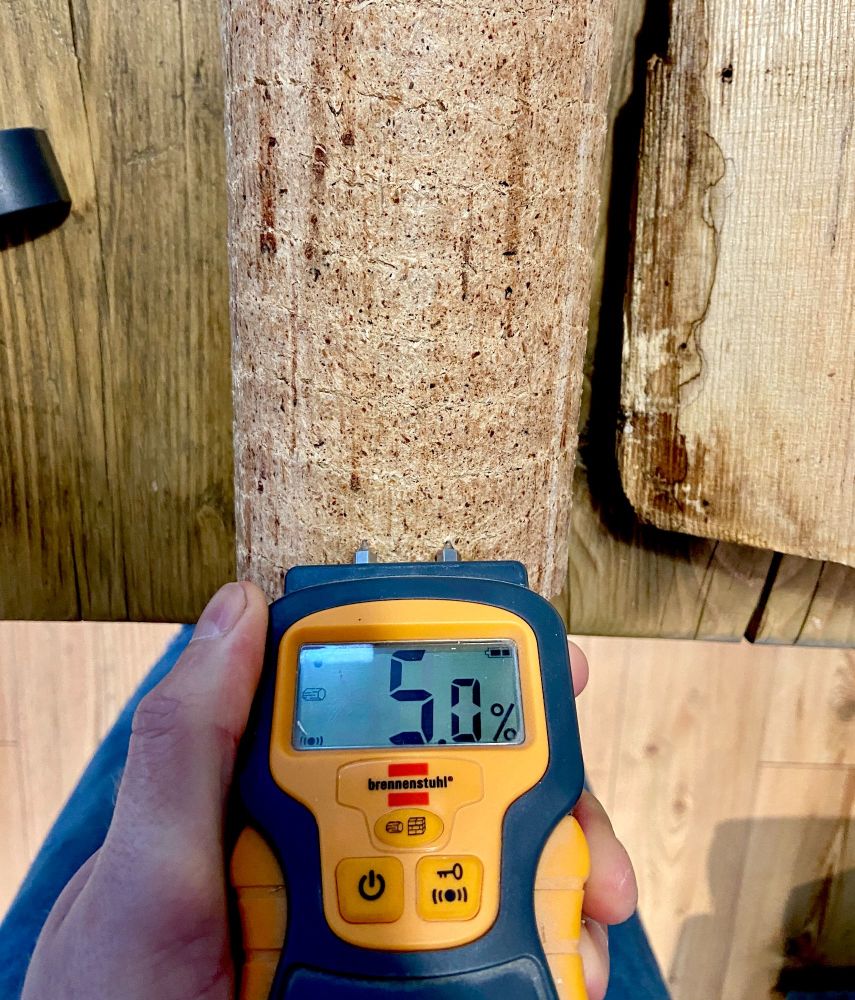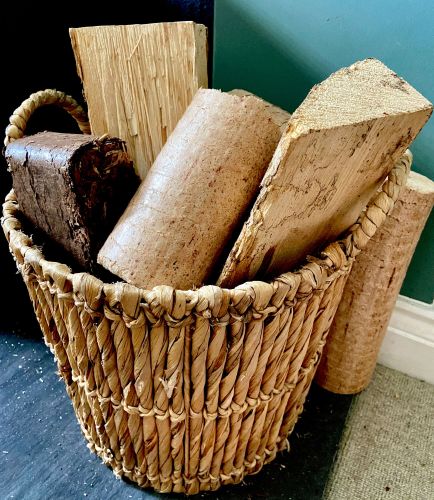Wood heating: Are briquettes more economical than firewood?
Posted on
With wood briquettes and heat logs becoming more popular across the UK many of you may be wondering what all the hype is about. What are briquettes and why should I be using them in my log burning stove? Briquettes, or heat logs are now often considered the perfect addition to most household heating appliances, but let’s take a look at why you might buy these over the traditional oak or birch wood logs. And are briquettes better than logs? Let's explore.

Wood heating: Are briquettes more economical than firewood?
Briquettes and heat logs are essentially the same thing, compacted wood shavings, by-products of a manufacturing process. Sawdust, wood chippings and bark waste are collected from saw mills, furniture companies, wood flooring companies and many more industries. The waste is collected, dried and compacted under extreme pressure into brick or cylinder shapes for use as wood fuels.
This process produces a product that is not only environmentally friendly, but also offers a long-lasting heat source that is easily stored. I’d like to take a look at four different types of fuels to see how they stack up against each other in terms of heat output and cost.
For the purpose of this comparison, I’m using a selection of wood fuel types from the industry’s market leader, Lekto Wood Fuels. I’ve selected two of their manufactured logs (night briquettes and hardwood heat logs) and two of their traditional hardwood logs (oak and birch).
Hardwood logs vs. briquettes for log burner
There are a number of factors to consider when making this comparison. The calorific value, the weight and moisture content of the product will all play an important role in terms of heat output. It can be difficult to make a direct comparison without access to a controlled scientific labatory but we can get a good idea when looking at the following factors.
Moisture content
Hardwood heat logs and night briquettes tend to have a much lower moisture content than traditional logs. When measured, Lekto hardwood heat logs all come in lower than 5% moisture content, where oak and birch tend to average out at about 10%. So straight away I can see that the manufactured logs are much drier. Why is this a good thing?
Dry wood is better than moist wood because of the way it burns. A lot of heat energy can be lost in a log burner when the moister content is higher. This is due to the flames taking more thermal energy to evaporate the water molecules. It can take longer for a stove to heat up and less heat is produced as a result.
It’s also not good for your stove and chimney as the moisture can cause more resins to form, causing blockages which can cause chimney fires.

Any wood fuel that is more than 20% should be avoided or dried further. If you want the highest heat output, always opt for fuels with the lowest moisture content. It’s worth investing in a moisture meter if you don’t already have one. They are inexpensive and will help you get the best out of your wood fuels.
Weight
When taking two similar sized products it’s easy to see that the manufactured logs are heavier. This is because they have been compacted so heavily to form their shape. The process of compacting the sawdust or wood chippings is chemical free so there’s no difference in exhaust gases compared to oak or birch logs.
When it comes to comparing oak and birch, they are both hardwoods, but oak is the denser of the two. This makes it heavier and therefore burns for a longer period of time. This is reflected in the cost. Oak is roughly 17% more expensive than birch and provides roughly the same extension in burn time so there’s little difference in terms of which is the most economical.
When we look at hardwood heat logs the burn time increases again. The product is so dense that it’s possible to get up to 3 hours burn time, with a steady flame, from one log. Lekto night briquettes have a similarly high level of density and weight but as they are made from bark, can burn for up to 8 hours. I’ve used a night briquette with our log burner, on its lowest setting, that burned for over 10 hours. Whilst the night briquettes didn’t give off the same level of heat as the heat logs, it was still very impressive.
Calorific value
What is this and why is it so important? Calorific value (CV) is the measure of heating power on any given fuel type. It’s the amount of heat produced during combustion. Most often it is measured in kWh/kg, kilowatt hour per kilogram. The higher the CV, the higher the heat output of the product.
For Lekto’s hardwood heat logs, the calorific value is measured at 5.15kWh/kg.
Their night briquettes are measured at 4.50kWh/kg
However, it gets a little tricky when measuring the CV of oak and birch logs as they differ in size and moisture content between pieces. We can however look up the average value for these types of wood fuels which comes in between 4.1 and 5.3kWh/kg.
So, we have quite a mixture of values here, which doesn’t really help use decide which fuel is the most economical. What we can see however is the hardwood heat logs have a consistent high value. If you are looking for a consistently high output from your log burner then heat logs are a sensible option.

Wood briquettes vs logs: Conclusion
So are briquettes better than logs? The stats are in and what we can see from the above is that hardwood heat logs tend to stand out when compared to the others. They have the (consistently) highest calorific value, the lowest moister content and are denser. So surely, they are the best product to purchase for your log burning stove. Right?
To a certain extent I would say yes, they are the most economical product to use in your log burner, but not always the best.
I actually think it’s worth investing in each one of these products and having a selection available for your wood burning stove. They each have different calorific values, densities and moisture content but they also have certain characteristics which make them suitable for certain situations. Some are great for lighting a fire, some ideal for a consistent hot flame and others for burning over-night.
For the best results I tend to use a birch log for getting a fire going, to create a decent bed of embers. Then, half an hour to an hour in I would add either a hardwood heat log or oak log. Finally, to keep the fire going for extended periods of time I would use a night briquette.
Briquettes vs logs? Each product has their place in the life of a fire.
I hope this has helped you select the best wood fuel for your stove.
Thanks for reading.
Before you go...
Check out this Lekto heat logs review and peep below for a fire logs review and a Lekto discount code!
Lekto Wood Fuels discount code
Apply this discount code at checkout for 5% off your next purchase at Lekto Wood Fuels: WOODCREATE
